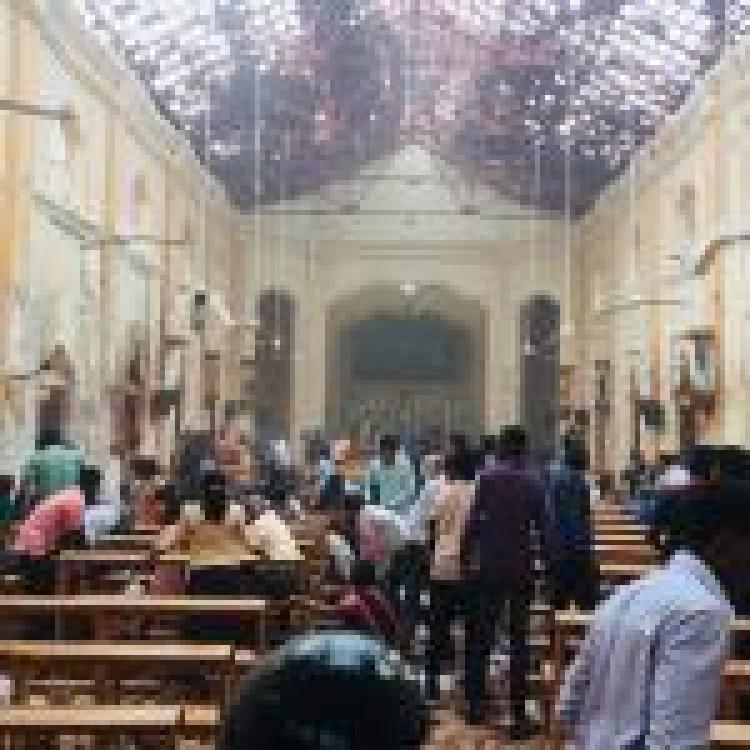<p>The Tamil Civil Society Forum has condemned, 'with a heavy heart,’ the Easter Sunday bombings.</p>
<p>In a statement released on Tuesday, the forum said ,</p>
<p>“We fear that these attacks which occur 10 years after the end of the civil war, have the potential of further complicating and sharpening the deep divisions in this country”</p>
<p>Noting concern at the impact the bombings could have on already strained ethnic harmony, the statement added,</p>
<p>“With the wounds and scars of the 30-year old war still a fresh, and given that in the post-war context we have failed to evolve a common social and political understanding of what that which divides us, these attacks come as a terrible blow.</p>
<p>The key to the future is how we handle the fear that engulfs us as a collective. If we end up identifying a community in its entirety as the perpetrator we will yet again bury the prospects for humanity on this island. We also wish to remind those in Government based on decades of painful experience, that re-securitising the State is not the way ahead. The numerically smaller communities will not be able to bear the brunt of the National Security State any further.“</p>
<p>See full statement below.</p>
<p><em>“</em><em>The Tamil Civil Society Forum condemns with a heavy heart the bombings on churches on 21.04.2019. We express our heartfelt condolences to the families of those who died in the attacks and wish those who were injured, a speedy recovery. </em></p>
<p> </p>
<p><em>We fear that these attacks which occur 10 years after the end of the civil war, have the potential of further complicating and sharpening the deep divisions in this country. That the attacks have sharpened the long-standing historic suspicions, fear and mistrust among communities is evident from the conversations that are taking place on social media platforms. It is easy to guess that the intention behind these barbaric attacks was to further sharpen and deepen this polarization. With the wounds and scars of the 30-year old war still afresh, and given that in the post-war context we have failed to evolve a common social and political understanding of what that which divides us, these attacks come as a terrible blow. </em></p>
<p> </p>
<p><em>The key to the future is how we handle the fear that engulfs us as a collective. If we end up identifying a community in its entirety as the perpetrator we will yet again bury the prospects for humanity on this island. The truth is that we – both the State and its communities – are ill prepared to handle the aftermath of these attacks. We call upon political, religious and civil society leaders to act with the consciousness that unless we act now, setting aside short-term, narrow interests with steadfastness and calmness, we will fail to lay the foundations for a peaceful future. We also wish to remind those in Government based on decades of painful experience, that re-securitising the State is not the way ahead. The numerically smaller communities will not be able to bear the brunt of the National Security State any further. </em></p>
<p> </p>
<p><em>Let the message of Easter, of living for the other, take center stage in our thoughts. We call upon all concerned to act with humaneness and in humanity. Our differences should help us understand and appreciate our diverse lives. It should not divide us. “</em></p>
<p> </p>
We need your support
Sri Lanka is one of the most dangerous places in the world to be a journalist. Tamil journalists are particularly at threat, with at least 41 media workers known to have been killed by the Sri Lankan state or its paramilitaries during and after the armed conflict.
Despite the risks, our team on the ground remain committed to providing detailed and accurate reporting of developments in the Tamil homeland, across the island and around the world, as well as providing expert analysis and insight from the Tamil point of view
We need your support in keeping our journalism going. Support our work today.

